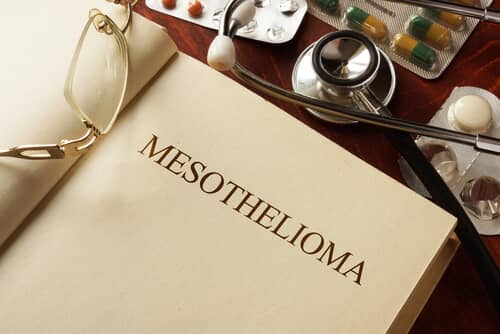
Mesothelioma Treatment
There are several ways to treat mesothelioma cancers; three are considered “standard” and others are currently being used in clinical trials. Success with any mesothelioma treatment depends upon many factors, such as the type of mesothelioma cancer, the stage of the cancer and the patient’s health history.
Standard Mesothelioma Treatments
The three standard types of treatment used for malignant mesothelioma are surgery, radiation and chemotherapy.
Surgery. According to the National Cancer Institute (www.cancer.org), mesothelioma surgical options include:
- Wide local excision. This type of surgery attempts to remove all the cancer – including some of the healthy tissue around it.
- Pleurectomy and decortication. This type of surgery removes a portion of the covering of the lungs, the lining of the chest and a portion of the outside surface of the lungs.
- Extrapleural pneumonectomy. This type of surgery removes one entire lung and part of the lining of the chest, the diaphragm and the lining of the sac around the heart.
- Pleurodesis. This is a surgical procedure which uses chemicals / drugs to make a scar in the space between the layers of the pleura (the lining around the lungs). Fluid is drained from the area, and chemicals are then used to “scar” the area to inhibit production of fluid in the future.
However, even if the doctor removes all of the cancer that can be seen at the time of the surgery, some patients may be still be given chemotherapy or radiation therapy afterward to kill any cancer cells that remain.
Radiation therapy. Radiation therapy is a cancer treatment which uses high-energy X-rays or other types of radiation to kill cancer cells or keep them from growing. There are two types of radiation therapy – external and internal. External radiation therapy uses a machine outside the body to send radiation toward the cancer; internal radiation therapy uses a radioactive substance sealed in needles, seeds, wires or catheters that are placed directly into or near the cancer itself.
Chemotherapy. Chemotherapy uses drugs to stop the growth of cancer cells – either by killing the cells altogether or by preventing them from dividing. Chemotherapy can be taken orally or be injected.
When taken orally (referred to as systemic chemotherapy), drugs enter the bloodstream and can reach cancer cells throughout the entire body.
When placed directly into the body’s cerebrospinal (brain and spinal cord) fluid, an organ or a body cavity such as the abdomen (referred to as regional chemotherapy), the drugs mainly affect cancer cells in those specific areas. In certain situations, doctors will use a combination of chemotherapy methods to attack the cancer.
Mesothelioma Treatments Being Used In Clinical Trials
New ways to treat mesothelioma are continually being discovered and tested. Some of the newer mesothelioma treatments being used in clinical trials include biologic therapy, hyperthermic intraperitoneal chemotherapy, photodynamic therapy and gene therapy.
- Biologic therapy. Biologic therapy, also known as biotherapy and immunotherapy, is a treatment that attempts to stimulate a patient’s immune system to fight cancer by rejecting and destroying tumors and restoring the body’s natural defenses against cancer.
- Hyperthermic intraperitoneal chemotherapy (HIPEC). Hyperthermic intraperitoneal chemotherapy is a type of regional chemotherapy that is being studied in the treatment of peritoneal mesothelioma. It involves surgically removing cancer in the abdomen, then taking a heated solution which contains anti-cancer drugs and pumping it into the abdomen to kill whatever cancer cells remain.
- Photodynamic therapy (PDT). Photodynamic therapy uses nontoxic, light-sensitive compounds that become toxic to cancer cells when exposed to light. Unlike traditional forms of treatment like radiation and chemotherapy, PDT is viewed as minimally toxic or invasive.
- Gene therapy. Gene therapy seeks to “correct” the genes which allow cancerous tumors to grow in order to control the size of a tumor and its ability to spread to other parts of the body.
How will you pay for your costly medical treatment? A successful claim against the asbestos maker could cover those expenses and other damages related to your illness.
Salvi, Schostok & Pritchard P.C. offers a free, no-obligation evaluation of mesothelioma claims in Chicago and throughout Illinois. You will not pay for our legal services unless we obtain compensation for you and your family. Contact us toll free at 312-372-1227 or use our free online contact form.







